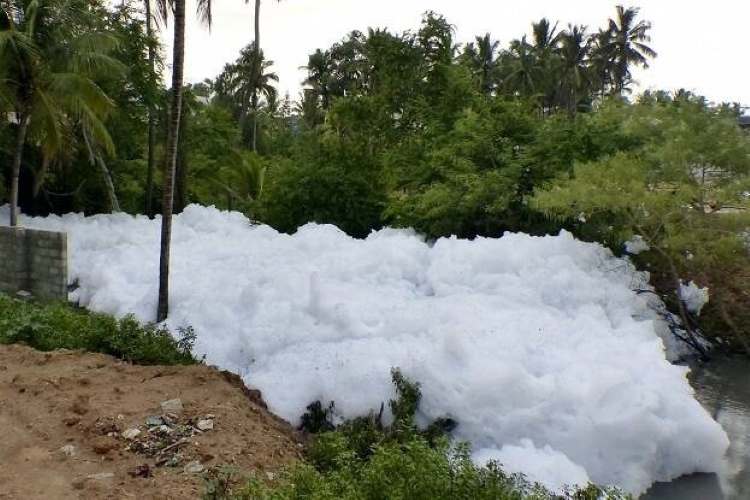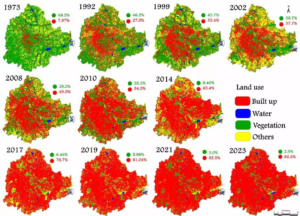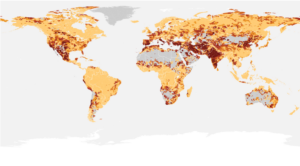
Bengaluru water crisis and cholera threat: Still reeling under a severe water crisis, Bengaluru is now confronting a surge in stomach ailments. A confirmed case of cholera has raised concerns, with additional suspected cases under investigation. Despite the absence of a declared cholera outbreak, the civic authorities have issued advisories due to the rising incidence of stomach-related diseases. Cholera, a diarrheal illness caused by the vibrio cholerae bacterium, poses significant health risks, with global estimates suggesting up to 4 million cases annually.
The link between water scarcity and health issues is direct and profound. Insufficient and unsafe water supply leads to hygiene challenges, compounding the risk of waterborne diseases. The rise in cholera and other stomach-related ailments in Bengaluru is a stark reminder of the city’s fragile water and sanitation infrastructure. The situation is further stressed by seasonal variations, with the onset of summer exacerbating water shortages and associated health risks.
Healthcare professionals in Bengaluru report a notable increase in patients with severe stomach issues, with some testing positive for cholera. This surge is attributed to factors such as poor sanitation and contaminated water sources, compounded by overcrowded living conditions and inadequate hygiene.
Bengaluru’s situation is not unique. The World Health Organisation estimates that 1.3 to 4 million cholera cases occur globally every year, with the highest burden concentrated in low- and middle-income countries. This highlights the importance of global collaboration and knowledge sharing to develop effective strategies for cholera prevention and control.
READ I Delhi’s air pollution crisis begs for lasting solutions
Bengaluru water crisis
Water scarcity in Bengaluru has evolved significantly. Residents point to the city’s mismanaged water resources and rampant urbanisation as key contributors to the crisis. Over the past five decades, Bengaluru has witnessed a dramatic increase in built-up areas, straining natural resources and leading to a loss of green spaces.
The city’s burgeoning population, coupled with inadequate urban planning, has led to the overutilisation of available water resources. The failure to enforce sustainable water usage and conservation practices has resulted in the depletion of groundwater levels and the deterioration of water quality. This scenario is aggravated by the lack of stringent regulatory frameworks and effective implementation of existing water management policies, making sustainable water resources management a distant goal.
The transformation from Garden City to Silicon Valley reflects Bengaluru’s struggle with sustainable development. Historical reliance on community-managed tanks and wells has shifted towards piped water, neglecting traditional water conservation methods. The increasing per capita water consumption further illustrates the shift in consumption patterns, highlighting a broader societal inclination towards materialism.
Groundwater depletion and urban planning
Reports indicate that Bengaluru faces significant water scarcity, with many borewells drying up. The reliance on over-exploited groundwater, combined with inadequate public water infrastructure, forces residents to depend heavily on water tankers, escalating costs.
Urban expansion has outpaced the city’s planning and resource allocation, leading to overexploitation of groundwater. The reduction in green cover, essential for groundwater recharge, has worsened the situation. Initiatives such as digging new borewells are seen as short-term solutions that fail to address the underlying issue of groundwater depletion.
Land-use changes in Bengaluru city

Source: Indiaspend
Water stress: A global problem that’s getting worse

The ecological impact of Bengaluru’s water crisis is also significant, affecting biodiversity and ecosystem services. The decline in water bodies and green spaces within the city limits has led to a loss of habitat for various species and disrupted natural water cycles. Moreover, the pollution of lakes and rivers with untreated sewage and industrial waste compounds the environmental crisis, indicating a need for integrated environmental and water management strategies.
Sustainable water management
Integrated water management strategies can mitigate the crisis. These includes enhancing rainwater harvesting, promoting wastewater treatment and reuse, and improving public infrastructure. Addressing non-revenue water losses through infrastructure overhauls and promoting efficient water use are crucial steps.
Civic engagement and community initiatives play a crucial role in addressing the water crisis. Grassroots movements and local organisations are increasingly involved in water conservation efforts, including lake rejuvenation projects and awareness campaigns on water saving. These community-led initiatives not only contribute to immediate relief but also foster a culture of sustainability and responsible water usage among the urban population.
Sustainable urban planning, emphasising water-sensitive design and policy improvements, is essential. Initiatives to revive traditional water management practices and diversify water sources can provide long-term relief. However, these efforts require coordinated action from government, civil society, and the private sector to ensure water security and sustainable urban development in Bengaluru.
